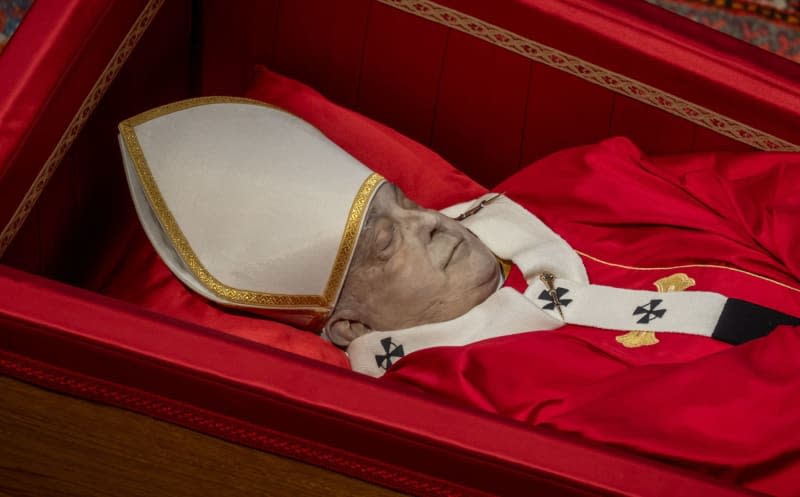They say great men die on great days, and so it was with Pope Francis. After weeks of illness, he passed away quietly – on the Monday after Easter Sunday. A day of stillness and reflection, befitting a man whose life was both radical and restrained. He reshaped the Church with gentleness, honesty, and a rare sense of forward-thinking.
For me, this hits deep. I owe so much to the Roman Catholic Church – my education, healthcare, and the grounding I’ve had throughout life. Growing up in Nandom in the Upper West Region of Ghana, the Church wasn’t just a place of prayer; it was my platform. It gave me confidence, broadened my world, and helped me figure out how to navigate this complex yet simple world. So yes, I care deeply about what happens in the Church. And Pope Francis – he made me care even more. I’ve only lived through three papacies—John Paul II, Benedict XVI, and Francis. I was too young to fully grasp John Paul II’s era, but I was old enough to witness the contrast between Benedict and Francis. And maybe it’s the scientist in me, but I’ve always had a soft spot for Pope Francis—maybe because he was a chemist before becoming a priest. That connection made me listen more closely.
From the very start, he wanted to be different. And that’s no small thing when you’re sitting on a 2000-year-old throne like St Peter’s. The name he chose, Francis, was our first clue. Named after the humble 13th-century saint who loved the poor and preached peace, it told us everything. This Pope was going to lead differently. He never pretended that Christians were better than others. After attacks by Muslim extremists, he famously said that if we’re going to talk about Islamic violence, then we also have to talk about Catholic violence. That kind of honesty isn’t always welcomed, especially in North America or even here in Africa. But that was his style – truthful, open, deeply human. And yes, he remained a traditionalist in many ways. He didn’t budge on issues like abortion, euthanasia, or priestly celibacy. He didn’t support the ordination of women. But even while holding the line on these things, he made people feel seen. His compassion for gay couples, his words of inclusion – “Who am I to judge?” sparked debate and, frankly, made a lot of people (Christian and Muslim alike) go, “What the f*vk?” His papacy was full of these paradoxes: conservative in doctrine, but revolutionary in tone.
He also changed the face of the Church literally. By appointing over 140 cardinals from outside Europe, he shifted the balance of power and reminded the world that the Catholic Church is truly global, not just a Western institution. That decision hit home for me. From the quiet village of Nandom in Ghana’s Upper West Region, he selected Cardinal Richard Kuuia Baawobr. It was huge. The second cardinal to be appointed from Nandom, and the third from the Catholic community in Ghana, following Cardinal Appiah Turkson. Pope Francis became the third consecutive Pope to raise the profile of Ghana in the global Catholic community. Another reason he made a permanent mark on my heart.
And if there was one issue he treated not just with urgency, but with moral clarity – it was climate change. He saw the crisis not as scattered problems, but as one system: war, poverty, ecological collapse – all tied together. “We are not faced with two separate crises… but one complex crisis,” he wrote. That wasn’t just awareness. It was spirituality with a wide lens. He made the climate a moral issue. “The Earth… looks more and more like an immense pile of filth.” That wasn’t metaphor. It was a wake-up call. For him, pollution was sin and Earth care, sacred. He saw the pain of the poor and the planet as one shared wound.
Pope Francis taught us that faith isn’t a fortress, it’s a field hospital. That mercy isn’t weakness. That leadership can be both firm and tender. For all the criticism he took, history will remember him not just as the first Pope from the Americas, but as the one who reminded us that following Christ means loving boldly, living simply, and walking humbly. This was a man who saw the flaws in the Church and still loved it enough to challenge it. A Pope who didn’t care for image but cared deeply for people. A man who chose a Church that walks with the wounded, rather than one locked away in comfort.
Today, the throne of St Peter is empty. But the heart of the world beats with the legacy of a man who dared to be different. Pope Francis made me think differently about leadership, about faith, and about what it truly means to serve others. He made the Church feel a little closer, a little more human – a little more like the living image of Christ.
Rest well, Holy Father. You did your part – and then some.
Requiescat in pace, Papa Francisco.


